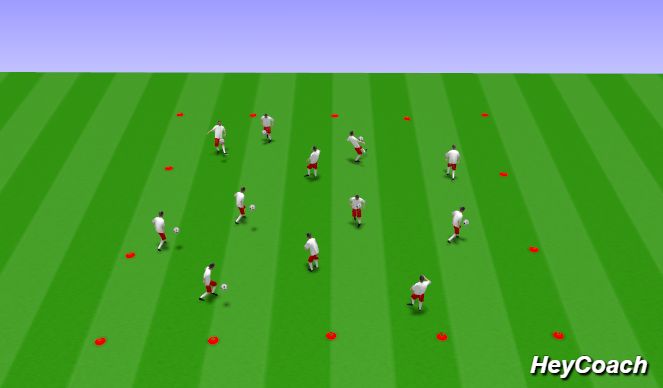
Organization:
In a 30x40 yard grid, each Player with a ball.
Instructions:
"The One Bounce Juggling Challenge": Player starts the juggle with 1 bounce, then takes 1 touch; then lets the ball bounce again, then takes 2 touches; then let's it bounce once again, then takes 3 touches, etc. If the player messes up the sequence, then they start again at 1. Challenge players to set their own new record.
Coaching Points:
Players try to improve their touches (suppleness, control and foot-eye coordination) by juggling with different surfaces of their feet & body.
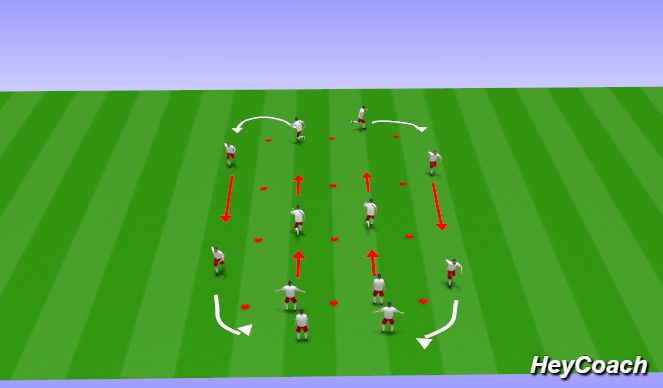
Organization:
12 players in a 2 lane grid, 10x20 yards.
Instructions:
Players form 2 lines in each lane and go through a variety of dynamic stretches in 2 lines. Add any static stretches as needed.
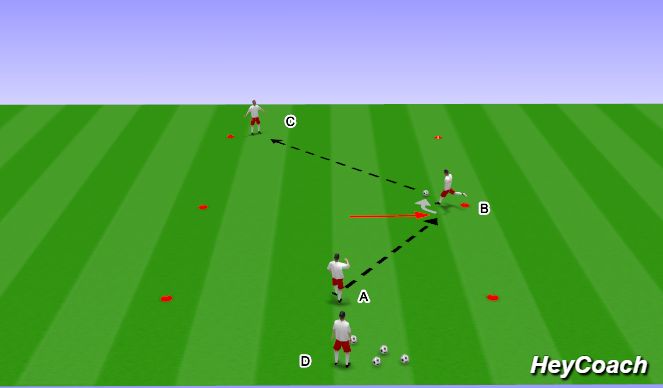
Organization: x3 Grids (for 12 Players)
4 Players (A, B, C, & D) & 1 ball in a 20x30 yard grid.
Instructions:
Middle player (B) checks and receives ball from player on end line (A), B then opens out and have 2 touches to get ball to the player on end cone (C). After pass, B transitions to the open cone on end line (where C was).
Coaching Points:
· Cue for check and pass
· Quality of pass (weight and accuracy)
· Check shoulder to make decision of 1st touch & body shape
· Open body shape (since there's space behind)
· Receive with the Back foot
· Quality of next pass
· Speed of next movement
Progressions:
· Player B checks away and the checks at an angle
· Player A passes to Player B
· Player B has 2 touches to Player to Player C
· Player A moves to become Player B
· Player B moves to become Player C
· Player C comes back to start (where Player D is)
· Player D (the resting player) becomes Player A
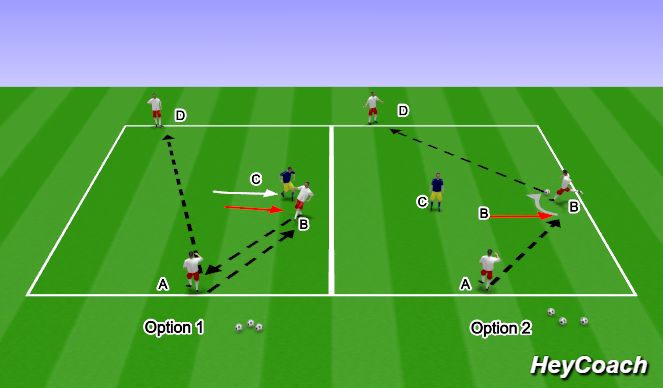
Organization: x3 Grids (for 12 Players)
4 players (Players A, B, C, & D) & 1 ball in a 20x30 yard grid.
Instructions:
Same as part 1, but Player C now starts in middle with player B and can do the following options:
* OPTION 1: Player C can either go with (as a shadow defender) with Player B, who then plays back to Player A who plays forward to C.
or
* OPTION 2: Player C can stay; then Player B can open out with the back foot and then passes to Player D.
In either option, C always becomes D, D becomes A, A becomes B and B becomes C.
Coaching Points:
· Cue for check and pass
· Quality of pass (weight and accuracy)
· Check shoulder to make decision of 1st touch & body shape:
* If there's space behind receiving player: open up to receive with back foot
* If there's pressure (defender) behind attacker: then set the ball back to to Player A to play forward
· Quality of next pass
· Speed of next movement
Progressions:
Players Play 2 vs 1. Player A always defends, B and D attack and C drops out after pressuring or staying.
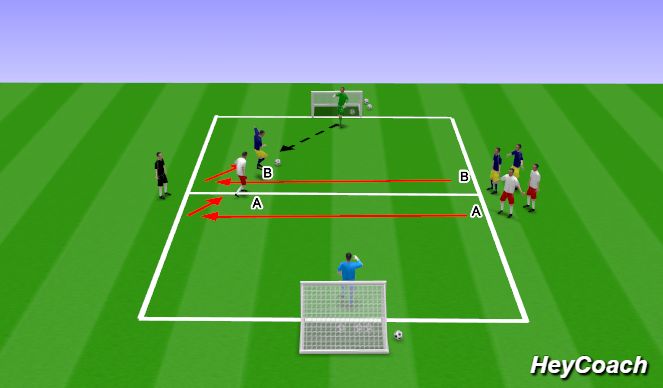
Organization:
2 teams with GK's (can substitute a Field Player acting as a GK, if need be) in a 30x40 yard grid with 2 small goals.
Instructions:
Both players run towards coach along the line, on the command of coach (calling a color) the GK from that color rolls the ball out to start the game.
Coaching Points:
· Pass as they check
· Check shoulder as ball is passed
· Communication by passing player
· Can attacker open out to attack defender
· If not can they move 1st touch into space to pick their head up
Progressions:
Player A and B on coaches command jog onlong the middle line, on coaches 2nd command of a color (in the example its White) the goalkeeper of that color rolls the ball.
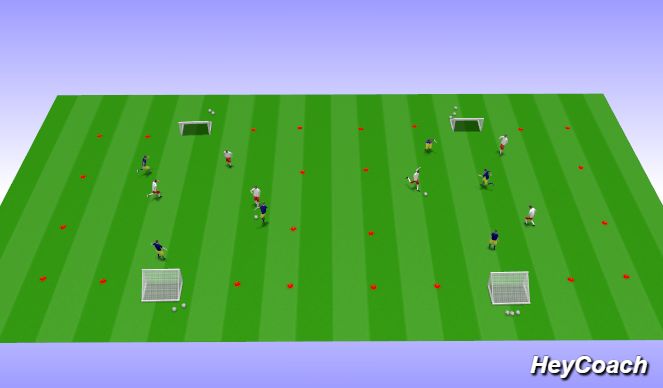
Organization:
3v3 Small-sided tournament games: 4 teams of 3 players eachteam. 2 fields of 30x40 yards with 2 Pugg Goals on opposite endlines.
Instructions:
4 Teams of 3, play 3v3 tournament style format where each team will play one another. 3 points for a win, 1 point for a tie and 0 for a loss. Each game should be approximately 6-8 minutes in duration (obviously play a 3 game tournament).
Coaching Points:
· Review of session's learning outcomes being translatedinto the game
· 3 lines of attack
· Creating diamond (gives angles of support)
· Making diamond as big as possible (Creating space)
· Identifying any numbers up situations
Progressions:
None.